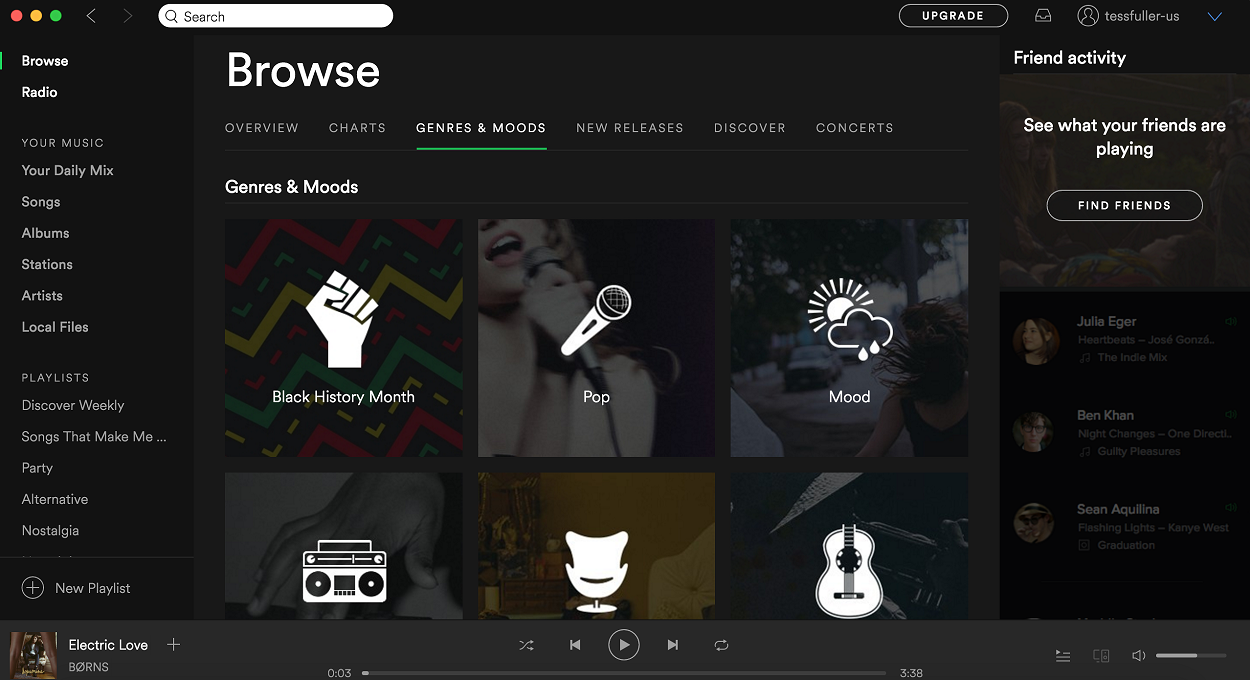Better Your Mind Through Music
New studies show that organized sound awakens thought, increases brain activity and effectively relieves stress among students.
March 7, 2017
Music is instinctual among humans. Our reactions to the genres of music we enjoy are universal. Yet new studies prove that the effects of music may be more than physical. As science holds it, the brain’s reaction to music may be the key to relieving anxiety and stress in our strenuous Berkeley lives.

BUCS USE MUSIC TO STAY CONNECTED: Maria Rios ‘17 sits in the Gries Student Lounge jamming out to Colombian music. “It’s how I stay connected,” she explained. Rios was born in Colombia, but moved to Ecuador after just a year.
Why are we so naturally inclined to make and listen to music? Humans have always channeled their emotions and intelligence through different forms of media. Music has been a way to express the deeply rooted and innermost thoughts of the individual’s brain. Listening to music has an effect on the brain similar to the effects drugs have. After hearing a song you enjoy, the release of dopamine triggers the “reward” area of your brain. This happy hormone is the reason we continue to listen to music despite the occasional inconvenience.
How does this affect students? Activity in the regions of the brain associated with reward, movement, memory, attention and planning are just some of the beneficial effects associated with finding personalized music. When listening to music, our brains do much more than just acknowledge its presence. We use every part of the brain to compute and analyze the rhythm, melody and lyrics of music as organized sound. The organizational benefits coincide with improvements in reading comprehension, math, speech and language. Familiar music increases cognitive arousal and the relief of stress hormones assists with focus as well as relaxation.

STUDYING TO A BEAT: Gregory Moore ‘17 jams to Kanye West during study halls to keep up motivation. The Berkeley Café provides a great study environment, in which many students can be seen listening to their favorite music while studying.
How do I find out which type of music benefits me the most? That depends on the emotions you feel while listening; your reactions are major indicators of how you process sound. A tempo of 60 beats per second tends to relieve stress hormones and relax the mind. If the song you’re listening to makes you happy and you’re enjoying it, it will benefit you. The more you enjoy certain kinds of music, the better your brain reacts.

MUSIC GETS US THROUGH THE DAY: Sara Villanueva listens to music while working. “I mostly listen to R&B,” she says before moving on, stopping to smile at students and teachers as they pass in for a morning meal.
When should I be listening to music? Many students take time every single day to listen to music and relax. In most cases, students find it helpful to take the time to listen to music on their drive home from school or before completing a tedious assignment. Our very own Dr. Tavarez gave a few tips on how to best incorporate music into our daily lives. “Some ways to incorporate music into your daily schedules [include] listen[ing] to music while you exercise, when in the bath or shower, in the morning when you’re getting ready for the day… or anytime you need a quick pick-me-up or stress reliever.”
With the beginning of a new marking period, hopefully the Berkeley community will continue to incorporate music into their hours of studying and into their daily lives. With big goals in mind, it’s also important that we carve out time to listen to music to relieve stress in the future.

DECISIONS: Spotify is utilized by many Berkeley students due to its wide selections of songs, playlists and more. Spotify makes listening to favorites and discovering more music easy, organized and fun.




